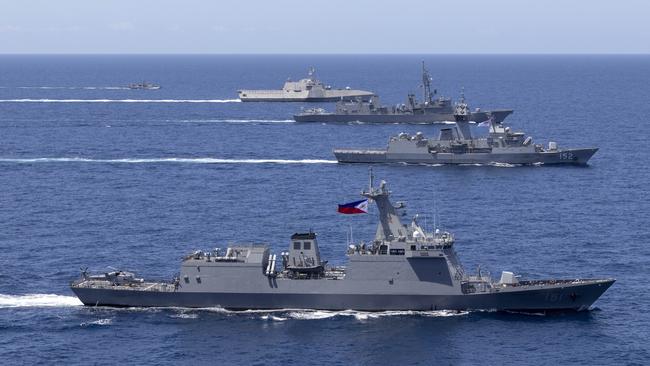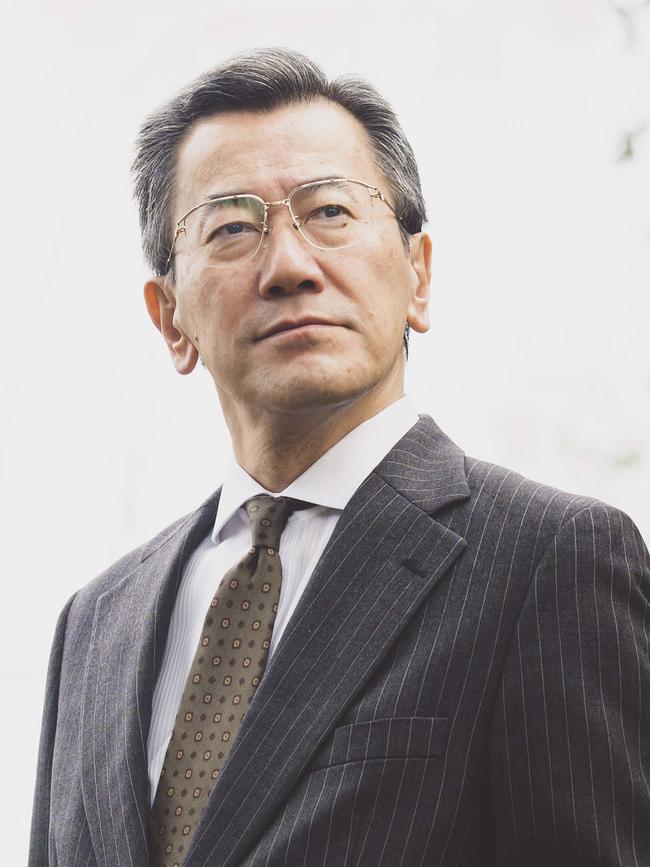Quad mire: ALP warned on China by former Japanese envoy
Former Japanese ambassador Shingo Yamagami says Anthony Albanese has allowed ‘the Quad’ security dialogue to languish as he repairs ties with Beijing.

Former Japanese ambassador Shingo Yamagami says Anthony Albanese has allowed “the Quad” security dialogue to languish as he repairs ties with Beijing, and has revealed Labor sought to silence his criticisms of China when he was Tokyo’s top diplomat in Canberra.
Writing in The Australian, Mr Yamagami laments Australia’s reluctance now to speak out against Beijing, accusing the government of staging photo opportunities with Chinese officials “while guns are being pointed at your head”.
He says the weakening of the Quad – the key Indo-Pacific power grouping that includes Australia, the US, Japan and India – has undermined co-ordination by member nations on the common threat posed by China.
Mr Yamagami backs the Albanese government’s efforts to improve relations with Beijing, but says Australia and its Quad partners need to keep up the pressure on China over its massive military build-up, harassment of smaller nations and growing security ties with Pacific nations.
The former diplomat and intelligence officer, who departed Australia about 12 months ago and now works in the private sector, says he “admired and respected” the Australia that gained international recognition as it “stood tall” against Beijing.
But he says the Australia of today is less willing to speak out publicly on Chinese security threats, and is content to allow the Quad to drift.
“We rarely hear the word ‘Quad’ from either Albanese or his Foreign Minister, Penny Wong,” Mr Yamagami writes.
“Tangible progress has been so inadequate that the Japanese Foreign Ministry’s briefing material on its home page has not been updated since September of 2023. This will gladden hearts in Xi Jinping’s Beijing.”
While Senator Wong raised a raft of sensitive issues with Chinese Foreign Minister Wang Yi on his recent visit to Australia, Mr Yamagami accuses the government of letting Beijing’s envoy off the hook.
“The present emphasis on ‘stabilising’ its relations with China is fine, but stabilisation should not mean staging photo opportunities or smiling and shaking hands with China’s Foreign Minister, Wang Yi, while guns are being pointed at your head – as they are in the South China Sea,” he writes.
Mr Yamagami finished his Canberra posting shy of the usual three-year term, amid efforts by Labor to tone down the public debate in Australia over Chinese strategic threats.
The diplomat writes that during his tenure, he was “told by several Australians in politics and government to seal my lips on the subject of China”.
The Australian has previously reported Senator Wong had concerns about the-then ambassador’s forthright public statements on China, and he was cautioned by the Department of Foreign Affairs and Trade about his public remarks.

Mr Yamagami links his treatment by the government to recent revelations by ASIO director-general Mike Burgess that he was told by some in the bureaucracy to ease off his counterespionage activities.
“Developments since my departure suggest that Australia’s language regarding its own and our shared deteriorating security environment is narrowing,” Mr Yamagami writes.
The veteran diplomat does not blame Australia alone for the Quad’s de-prioritisation by its member states, arguing all have been preoccupied by domestic issues. His comments come as Quad nation officials puzzle over the timing of the next leaders’ meeting, which is likely to be delayed until after the US election in November, and may be pushed back further if Donald Trump wins the presidency.
The last Quad leaders’ meeting, in 2023, was supposed to be in Australia, but was hastily rescheduled to occur on the sidelines of the G7 in Hiroshima after US President Joe Biden was unable to attend.
India is due to host this year’s meeting, but Indian Prime Minister Narendra Modi faces an election concluding on June 1. The US is also preoccupied by its coming presidential election, while Japanese Prime Minister Fumio Kishida’s government has been distracted by political scandals.
“So, who is leading the Quad right now?” Mr Yamagami asks. “An honest and correct answer would be that nobody is doing so. This means there is a serious lack of quadrilateral consultation or co-ordination concerning the strategic challenges in the broad Indo-Pacific region – which is to say, we are not consulting each other about China.”
Asia Society senior fellow Richard Maude, who led the team that authored Australia’s 2017 foreign policy white paper, said the Quad had suffered in the past 12 months from a lack of leader-level engagement.
“I think we need to be looking to land a leader-level meeting in which all four leaders can be there, and that may have to wait until after the elections in India and America are over,” he said.
“It is very important to get back to that dynamic … And it also sends the most powerful message to China in terms of an alignment of interest among the four countries.”
Mr Yamagami’s criticism of the state of Quad diplomacy comes just days after Australian, US, Japanese and Filipino ships conducted a joint exercise in the South China Sea, in a show of defiance against Beijing’s disputed claim to the waterway.






To join the conversation, please log in. Don't have an account? Register
Join the conversation, you are commenting as Logout